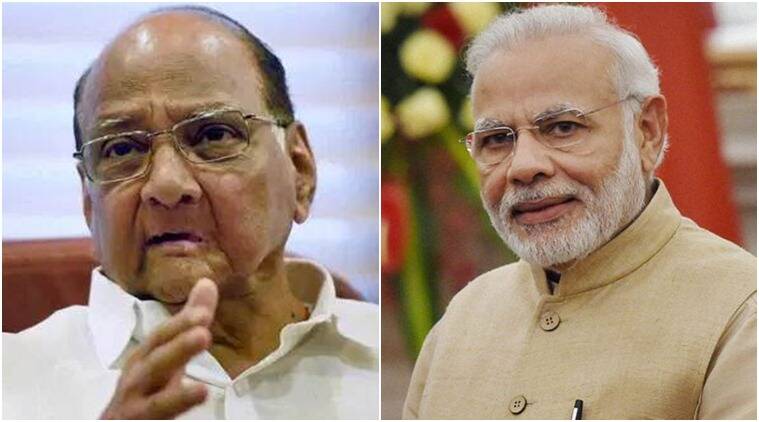Sharad Pawar, the NCP patriarch and apparently de facto ruler of Maharashtra, has written a letter to PM Modi in which he claimed that RBI is trying to ‘kill’ cooperative banking even though these banks are more efficient than scheduled commercial banks.
After the PMC bank scam, the government brought an ordinance to amend Banking Regulation Act. As per the act, Urban Cooperative Banks (UCBs) were brought fully under the supervision of the Central Bank of India which is RBI. So far, these banks were under dual authority with the power to appoint or change the management with the board and other regulatory functions lying with RBI. After the government order, 1,482 urban cooperative banks and 58 multi-state cooperative banks came under the direct supervision of RBI
However, this did not go well with the NCP patriarch who has an interest in cooperative banking and cooperative sugar bills since the initial days of his political career.
I have written a letter to Hon. @PMOIndia Shri @narendramodi to express my deep concern about the preservation of the ‘Co-operative’ character of Co-operative banks having legacy of more than 100 years. pic.twitter.com/CZ6IBu4kZ1
— Sharad Pawar (@PawarSpeaks) August 18, 2020
”Out of 1544 UCBs, only 70 UCBs are in the ‘‘D’’ category. Therefore it is ridiculous to state that there is no professionalism in cooperative banks. The incidence occurred in PMC Bank is a kind of ”fraud” and the same should not be viewed as a ”business failure” of cooperative banks,” wrote Pawar in a letter to PM Modi.
As UCBs come under the regulatory ambit of RBI, parties like NCP, YSRCP, TDP, and Congress have started feeling the heat. Maharashtra, Gujarat, and Andhra Pradesh have a large number of UCBs, with some of those having annual revenue in thousands of crores.
Local politicians are involved in the management of these banks and every year fraud worth thousands of crores is revealed in these banks. In Maharashtra, NCP, which was in power for years, had put a state guarantee on loans given by these banks. This means the local politicians who controlled the management of these banks would get loans worth crores from these banks and may not payback.
If the bank collapses, depositors, whose money accounts for the majority of capital with these banks, would suffer. When things blow out of proportion, the state government would come to rescue these banks and return depositors money using state resources. The politicians, who deliberately do not pay back the loans, are safe in any case.
However, with the complete control of banks getting in hands of RBI, the politicians could no longer do scams worth thousands of crores every year through cooperative banks, and this may have rattled senior Pawar, whose whole political empire is built around cooperative banks and co-operative sugar mills.
Therefore, senior Pawar wrote a letter to PM Modi and defended the dual regulation of cooperative banks. “It is not correct to say that misappropriation of fund or financial irregularities is observed in cooperative banks only. Further, it seems absurd to claim that privatisation of cooperative banks would curb or reduce banking frauds,” wrote Pawar in the letter.
Clearly, Pawar’s frustration is due to UCBs control going out of the hand of state government (read NCP and Congress politicians) as these banks were the source of all illegal transactions and financial wrongdoings by his party and party members.
The NCP has built its political empire around sugar co-operative societies and cooperative banks which were complementary to each other. The Fadnavis government ended the state guarantee on the loans provided by UCBs, but when the tri-party alliance came to power, it was again enacted possibly at the behest of NCP.
Also, the Fadnavis government had passed the ordinance in January 2016 to ban the directors of the cooperative banks due to which NCP faced financial irregularities from contesting elections for two terms. This step effectively eliminated many NCP and Congress leaders from the electoral competition. But, the party was once again strengthening its standing in UCBs until the union government’s move put a break on all its ambitions.
The Pawar family is the best example of how politicians use public offices to reap economic dividends. Sharad Pawar built his political and business empire by influencing the agriculture and related industries through policy manipulation. The cooperative banks, sugar mills, agriculture market produce committee (APMC) were the instruments for Sharad Pawar to build the power base and the politics of the state.
With the latest amendment in the Banking Regulation Act, Modi government has broken one pillar of Pawar’s empire, and when RBI will open up the books of UCBs, many members of Pawar family might land up trouble.
